
Was Ancient Christianity unique or a hodgepodge of Judaism and Paganism thrown together?
Some people, esp. some apologists, tend to overstate the case and imply that Christians were a completely different species of religion. They had Jewish roots, but were unJewish. They spoke Greek, but had no part of Hellenistic religion in them.
Of course, some scholars argue that Christianity was something that evolved from a rogue messianic sect into a Greco-Roman religion that freely borrowed and stole from other Greco-Roman religions.
So which view is correct?
Well, in actuality, they are both kind of true! Here is a video I made about the topic!!!
Christians could be distinct, idiosyncratic, and weird, even as they often sounded remarkably similar to things other Jews, Greeks, and Romans did and said.
I want to recommend to you four terrific books that I think show both sides of the coin. Two books that show how Christians were astoundingly odd and bizarre by the standards of antiquity. And, three books that show how Christians often wanted to fit into the world often adjusted their religious practices accordingly.
Larry Hurtado - Destroyer of the gods: Early Christian Distinctiveness in the Roman World
Early Christianity obviously reflected commitments inherited from its Jewish origins. But these particular features were no longer identified with Jewish ethnicity and early Christianity quickly became aggressively trans-ethnic—a novel kind of religious movement. Its ethical teaching, too, bore some resemblance to the philosophers of the day, yet in contrast with these great teachers and their small circles of dedicated students, early Christianity laid its hard demands upon all adherents from the moment of conversion, producing a novel social project.
Christianity’s novelty was no badge of honor. Called atheists and suspected of political subversion, Christians earned Roman disdain and suspicion in equal amounts. Yet, as Destroyer of the gods demonstrates, in an irony of history the very features of early Christianity that rendered it distinctive and objectionable in Roman eyes have now become so commonplace in Western culture as to go unnoticed. Christianity helped destroy one world and create another.
Nijay Gupta - Strange Religion: How the First Christians Were Weird, Dangerous, and Compelling
Within Roman society, the earliest Christians stood out for the oddness of their beliefs and practices. They believed unusual things, worshiped God in strange ways, and practiced a whole new way of doing religion that would have been viewed as bizarre and dangerous compared to other religions of the ancient world.
In Strange Religion, award-winning author and New Testament teacher Nijay Gupta traces the emerging Christian faith in its Roman context, showing how the first Christians
● dared to be different and pushed the boundaries of what was acceptable
● believed, worshipped, and lived in radical ways
● transformed how others thought about religion
● started a movement that grew like wildfire
Brought to life with numerous images, this book shows how the example of the earliest Christians can offer today's believers encouragement and hope.
Nadya Williams - Cultural Christians in the Early Church: A Historical and Practical Introduction to Christians in the Greco-Roman World
Cultural Christians in the Early Church, which aims to be both historical and practical, argues that cultural Christians were the rule, rather than the exception, in the early church. Using different categories of sins as its organizing principle, the book considers the challenge of culture to the earliest converts to Christianity, as they struggled to live on mission in the Greco-Roman cultural milieu of the Roman Empire. These believers blurred and pushed the boundaries of what it meant to be a saint or sinner from the first to the fifth centuries CE, and their stories provide the opportunity to get to know the regular people in the early churches. At the same time, their stories provide a fresh perspective for considering the difficult timeless questions that stubbornly persist in our own world and churches: when is it a sin to eat or not eat a particular food? Are women inherently more sinful than men? And why is Christian nationalism a problem and, at times, a sin? Ultimately, recognizing that cultural sins were always a part of the story of the church and its people is a message that is both a source of comfort and a call to action in our pursuit of sanctification today.
Douglas Boin - Coming Out Christian in the Roman World: How the Followers of Jesus Made a Place in Caesar’s Empire
The supposed collapse of Roman civilization is still lamented more than 1,500 years later--and intertwined with this idea is the notion that a fledgling religion, Christianity, went from a persecuted fringe movement to an irresistible force that toppled the empire. The "intolerant zeal" of Christians, wrote Edward Gibbon, swept Rome's old gods away, and with them the structures that sustained Roman society.
Not so, argues Douglas Boin. Such tales are simply untrue to history, and ignore the most important fact of all: life in Rome never came to a dramatic stop. Instead, as Boin shows, a small minority movement rose to transform society--politically, religiously, and culturally--but it was a gradual process, one that happened in fits and starts over centuries. Drawing upon a decade of recent studies in history and archaeology, and on his own research, Boin opens up a wholly new window onto a period we thought we knew. His work is the first to describe how Christians navigated the complex world of social identity in terms of "passing" and "coming out." Many Christians lived in a dynamic middle ground. Their quiet success, as much as the clamor of martyrdom, was a powerful agent for change. With this insightful approach to the story of Christians in the Roman world, Douglas Boin rewrites, and rediscovers, the fascinating early history of a world faith.
Luke Timothy Johnson - Among the Gentiles: Greco-Roman Religion and Christianity
The question of Christianity’s relation to the other religions of the world is more pertinent and difficult today than ever before. While Christianity’s historical failure to appreciate or actively engage Judaism is notorious, Christianity’s even more shoddy record with respect to “pagan” religions is less understood. Christians have inherited a virtually unanimous theological tradition that thinks of paganism in terms of demonic possession, and of Christian missions as a rescue operation that saves pagans from inherently evil practices.
In undertaking this fresh inquiry into early Christianity and Greco-Roman paganism, Luke Timothy Johnson begins with a broad definition of religion as a way of life organized around convictions and experiences concerning ultimate power. In the tradition of William James’s Variety of Religious Experience, he identifies four distinct ways of being religious: religion as participation in benefits, as moral transformation, as transcending the world, and as stabilizing the world. Using these criteria as the basis for his exploration of Christianity and paganism, Johnson finds multiple points of similarity in religious sensibility.


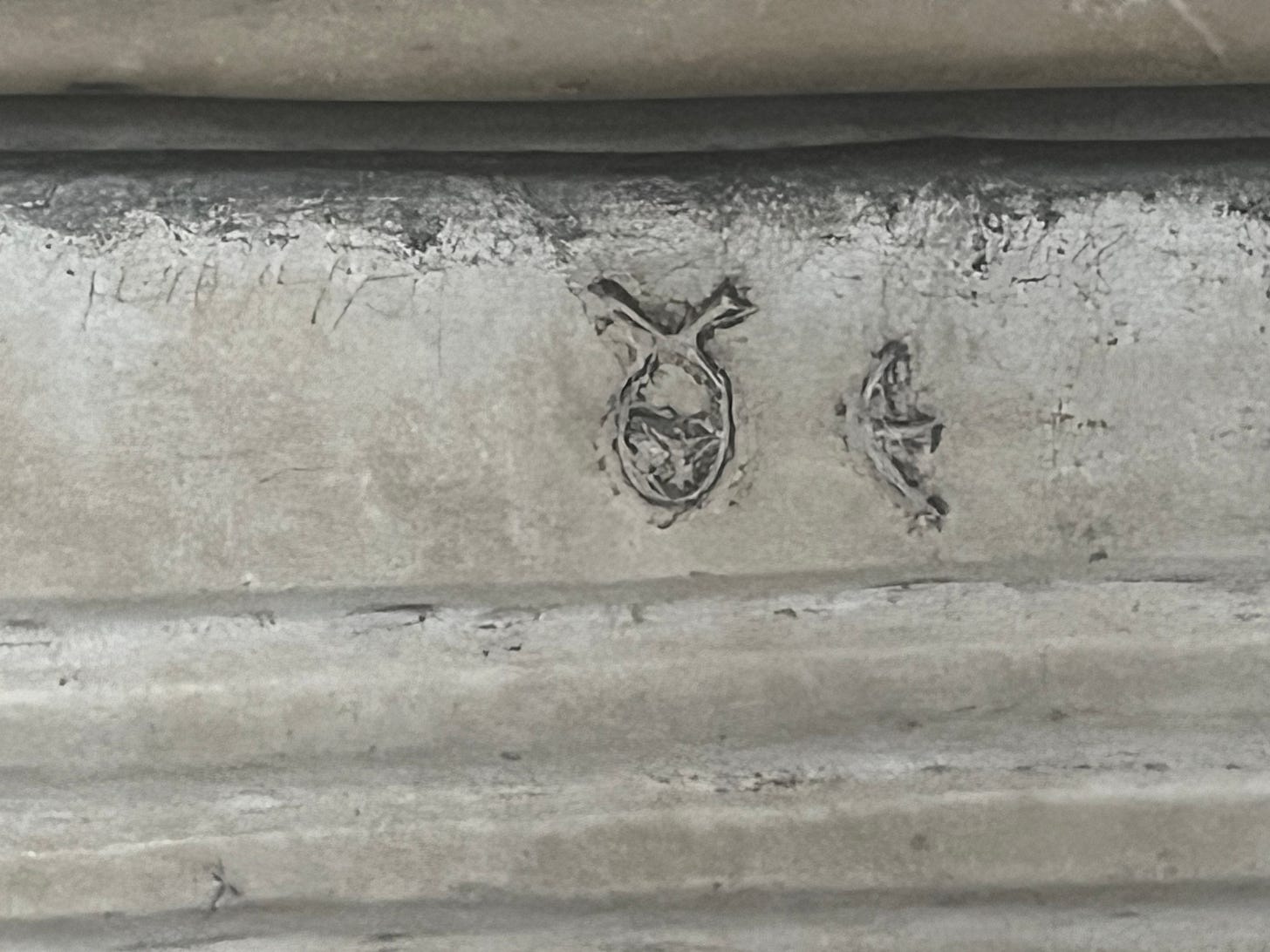
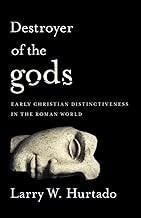
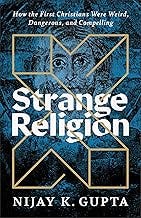
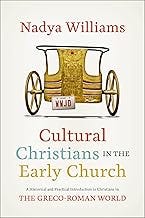
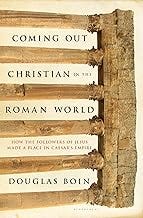
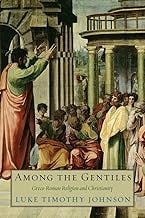
All this brings up a set of important questions: How unique is Christianity today in Western culture? While recognizing that Christianity has played a transformative role in the creation of modern liberal Western society, do Christianity's major tenets still standout as unique? If so, does the average Western Christian's life and praxis reflect that uniqueness? While these books examine the relationship/uniqueness between Latin Christianity and the Roman Empire, are there similar resources that examine Greek Christianity and Syrio-Oriental Christianity's relationship with the dominant cultures they grew within? And finally, how unique is Christianity in the non-Western world today, both in belief and praxis?
So Luke Timothy Johnson is still alive and publishing! He's a great Catholic scholar who must be long in the tooth.
I think his definition of religion (according to your quote) is one of the best I've seen. I recall the struggle I had with trying to define it when I started my MATheol at UQ. One of the definitions the Stud Rel department tried could apply to washing my car!